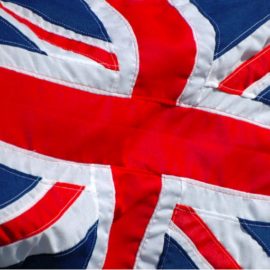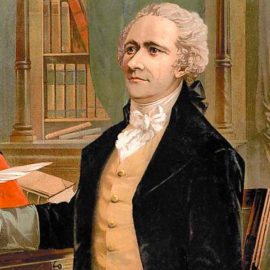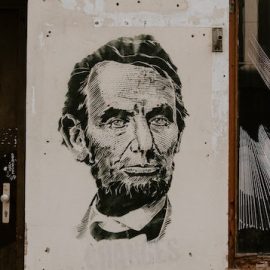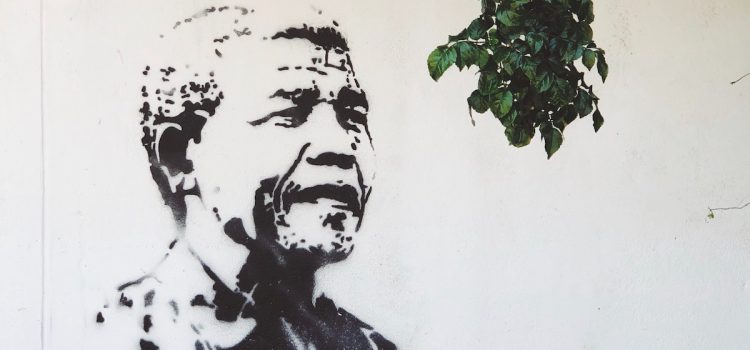
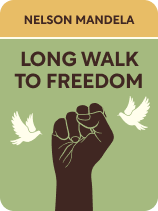
This article is an excerpt from the Shortform book guide to "Long Walk to Freedom" by Nelson Mandela. Shortform has the world's best summaries and analyses of books you should be reading.
Like this article? Sign up for a free trial here.
How did Nelson Mandela’s birth name set the stage for his extraordinary life? How did he get the name “Nelson”?
Long Walk to Freedom chronicles Nelson Mandela’s extraordinary life story, as told by the man himself. Mandela is known as one of history’s great peacemakers, but his own life wasn’t a peaceful one. Even his birth name reflects this.
Continue reading to learn about Nelson Mandela’s childhood based on what he wrote in his autobiography.
Nelson Mandela’s Childhood
Nelson Mandela’s childhood began in a small South African village called Mvezo, where he was born in 1918. He was a member of the Thembu tribe, which is part of the Xhosa nation. His father, Gadla Henry Mphakanyiswa, was the chief of Mvezo and the Thembu tribe. Unfortunately, Mphakanyiswa passed away when Mandela was only nine years old.
(Shortform note: While Long Walk to Freedom says that Chief Mphakanyiswa died when Mandela was nine, the Nelson Mandela Foundation claims that it was most likely three years later, when he was 12. In fact, the original manuscript for Long Walk to Freedom gave the year of his death as 1930, which would confirm that Mandela was 12. The newer version of the book doesn’t specify the year of Chief Mphakanyiswa’s death, only how old Mandela allegedly was at the time—which would place his father’s death in 1927.)
Mandela’s birth name was Rolihlahla, a Xhosa word for “troublemaker.” The name proved prophetic: Even as a child, he had a reputation as a rabble-rouser. His strong sense of justice—and his willingness to cause trouble in pursuit of justice—would define his life and his greatest accomplishments.
(Shortform note: Although Mandela became known (and revered) for making trouble on a national scale, having a reputation as a troublemaker can have some surprising benefits even in a personal or workplace context. For instance, when people expect you to speak your mind, even if your thoughts are controversial, it becomes easier to do so—and you’ll quickly learn if a particular place or group isn’t a good fit for you based on the response you get. You may also gain more opportunities for leadership; by definition, a leader has to be someone who doesn’t just repeat what everyone else is saying.)
Rolihlahla became the first member of his family to attend school, at the urging of two of his father’s friends. Mandela notes that those same friends convinced his mother, a woman named Nosekeni Fanny, to convert to Christianity and to baptize Rolihlahla into the Methodist church (formerly known as the Wesleyan church). He received his Christian name from his teacher on his first day of school, and, from then on, he was known as Nelson Rolihlahla Mandela.
Mandela explains that, at the time, it was typical for Africans to take a second, more “British” name—a throwback to a time when Britain controlled South Africa and British culture was seen as superior.
(Shortform note: Giving new names to colonized people is one way that colonists assert their cultural dominance; they replace people’s original identities with new ones that are more closely aligned with the colonists’ culture and language. In former British colonies, as well as in Britain itself, people often Anglicize their names even today to avoid discrimination. People with “foreign”-sounding names, regardless of their actual nationalities or upbringings, often find that people have negative reactions to them: For instance, people may assume that they can’t speak English very well. However, in recent years, some prominent figures have been pushing back against this trend and reclaiming their original names, such as Westworld actress Thandiwe (formerly Thandie) Newton.)

———End of Preview———
Like what you just read? Read the rest of the world's best book summary and analysis of Nelson Mandela's "Long Walk to Freedom" at Shortform.
Here's what you'll find in our full Long Walk to Freedom summary:
- Nelson Mandela’s extraordinary life story, as told by the man himself
- Why it took Mandela over 40 years to finish his law degree
- Nelson Mandela’s legacy and what South Africa is like in its post-apartheid years

